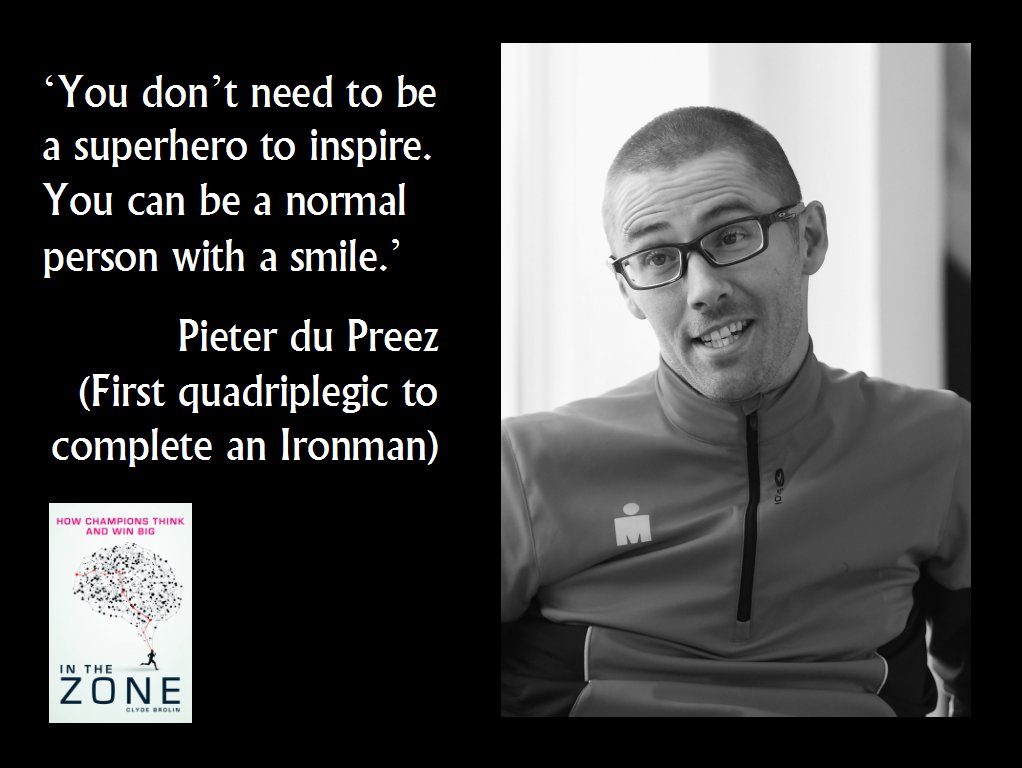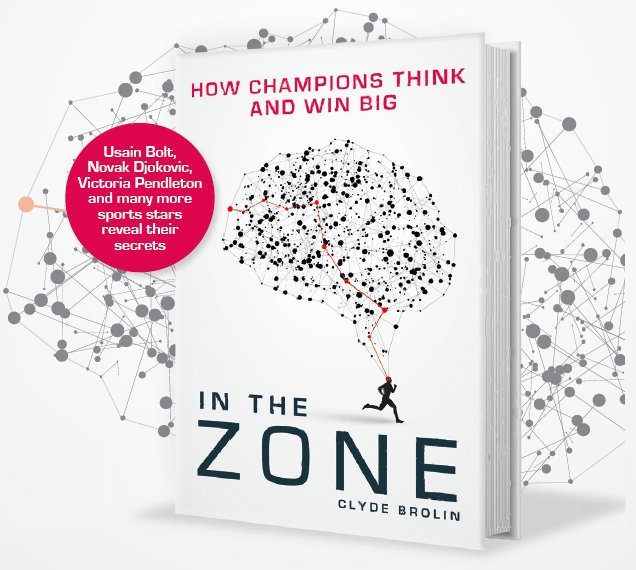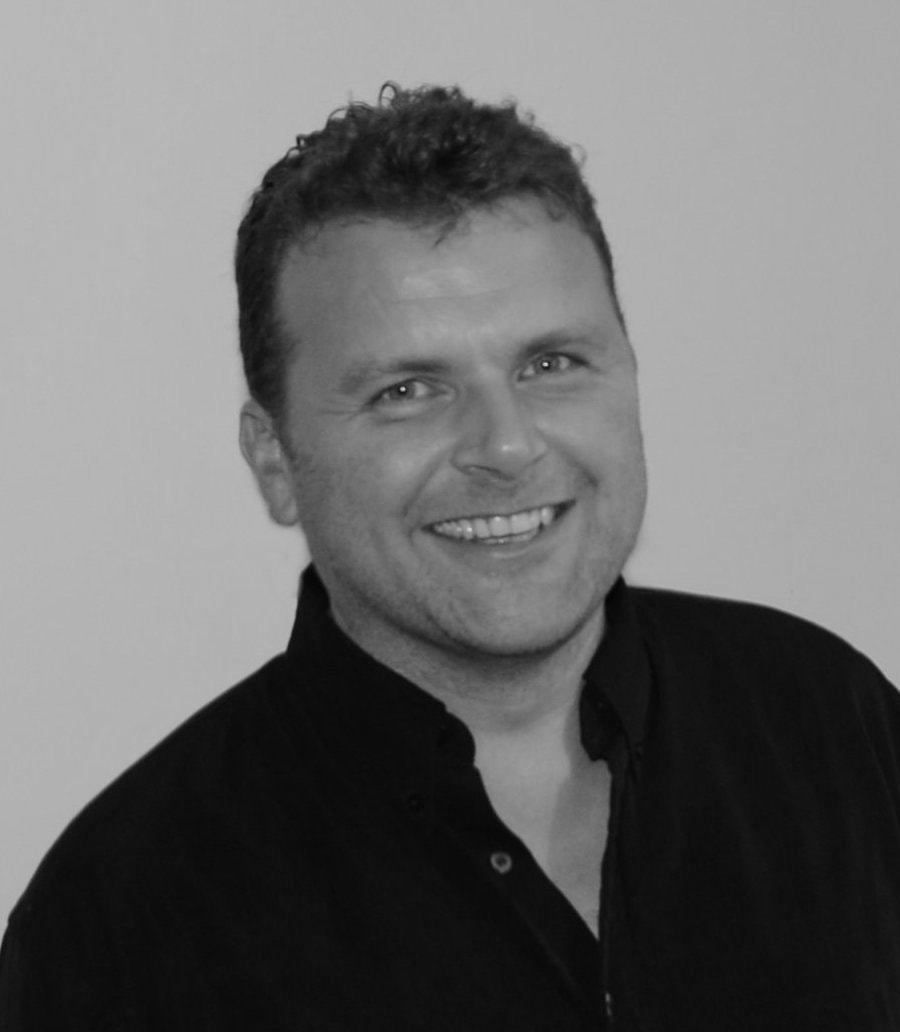|
If we want to understand the power of dreams – and how greatness always starts in our own heads – the all-time greats of sport provide all the evidence we need.
The world’s most decorated Olympian Michael Phelps collected 28 swimming medals over a record-shattering period lasting a day shy of 12 years. Of those, 23 were gold: he won his first on this day (August 14) at the 2004 Athens Games and his last in Rio on August 13, 2016. The foundation to his success was a brutal training schedule of countless repetitions – averaging seven miles a day, 365 days a year. Phelps started young too, spending his early years permanently around a pool. By the age of 11 he was swimming two and a half hours every day. He was just 15 when he made his Olympic debut at Sydney in 2000, reaching the 200-metre butterfly final but missing the medals. Just months later he broke that world record and the deluge began: his total now tops the entire collection of over 150 Olympic nations. The American was fortunate to grow up into the perfect physique for swimming – a long trunk and a wide arm span – but it’s in his head that he shines brightest. Such a staggering, history-altering career would never have come to fruition if Phelps hadn’t worked tirelessly to create vivid images of his races in advance, then steer his future accordingly. Thanks to rigorous mental training with coach Bob Bowman he learned to write his goals down, specifying each target time to a hundredth of a second. Even in his early teens he soon found himself hitting them precisely. ‘I started visualising when I was about 14,’ Phelps tells me in the book In The Zone. ‘It was all about thinking how a race could go, how you want it to go and how you don’t want it to go so you’re ready for anything. I found it could really help me to prepare. Visualisation is important so you don’t have any surprises. That means you can always stay relaxed. That was a big key in everything we did. Starting it at a very young age really helped me throughout my career.’ Visualisation is not just about being prepared for anything, it’s about shaping the future to fit the mould of your private vision. The greats start with a big vision, then they map out their route towards it by dividing it into smaller, more manageable goal-sized images. It helped that Phelps was also taught never to believe in limits. As such he always dreamt big, not settling for gold alone: ‘It’s crazy when I look back on my career because to me it feels like I’ve been living a dream come true,’ he smiles. ‘This is everything I thought about and dreamt of as a kid. It’s like: “This is real?” And it’s wild. Everything I’ve been able to accomplish is something I’ve always wanted and I’ve done everything I ever wanted to achieve. I wanted to change the sport of swimming and take it to a new level – and I have.’ Before his racing retirement Phelps, now a father to Boomer, started a foundation aimed at promoting water safety: ‘I still swim, but now it’s more for peace of mind. But there is still a lot I want to achieve. Spending time with kids is a passion of mine. Putting a smile on a kid’s face and seeing them having fun always puts a real smile on my face too. Now I want to help kids accomplish their dreams.’ The fact these successful ‘dream achievers’ are so keen to share out the secret is a lesson in itself… One thing the greats can’t help but learn en route to the top is that we are not merely passive beings being battered around the universe. Now they are desperate for the rest of us to realise we all - without exception - have the power within us to shape our own future. So where will your dream take you? Click here to hear more about the power of visualisation in Clyde Brolin’s interview on the BBC Radio 2 Breakfast Show with Chris Evans - five years ago today
0 Comments
The Olympics start tomorrow and elite athletes all over the world are dreaming big. For five long years they have dedicated their entire existence to Tokyo, regularly picturing the view as their national anthem sings out to a packed arena.
This is the justification for decades of focus on a single target: every early morning, every mile run through wind, hail and snow, every vomit-inducing gym session. All the pain will make sense when they reach the top of the world. Right? Pity few enjoy this golden pay-off. The rest will fail – very publicly – in full view of their family, friends, nation and planet. That is guaranteed to hurt more than anything they’ve ever felt before. “To fail to make a goal is one thing. To do it in front of two billion people is another. It’s heart-wrenching. When you work so hard and sacrifice so much… I literally felt my soul was being shattered.” These are the words of Missy Franklin: the darling of the Aquatics Centre at the 2012 London Olympics, this ever-smiling 17-year-old American swam to four gold medals and charmed fans with her happy-go-lucky personality. Cut to Rio in 2016 and it was a different story: she failed to reach the final of either of her individual events. Ouch. When I meet Franklin years later the humiliation remains etched in her mind. “Throughout my life everything made sense to me: you work really hard, you make the sacrifices, you do everything you can, then you get faster and achieve your goals,” says Franklin. “That’s why Rio made no sense. I was in my best shape ever, I had my best trainer… and I had the most disappointing meet of my life. “How does that work? It showed me the importance of mentality. Physically I might have been incredibly healthy, but mentally and emotionally I was in terrible health. That makes a huge difference. At 17 I was new; I didn’t have expectations. But now people knew what I did, and I started listening to their expectations. That was so hard, because before the Games started I felt I’d already failed. Even if I took home three gold medals it still wouldn’t be good enough: ‘Oh well, you got four in London…’ “I always swim my best when I’m enjoying myself, but that took all the fun away. I felt so heavy going in; so much pressure. They were the most miserable eight days of my life. It broke my heart to feel like that, because I was at my second Olympics and I wanted to enjoy every bit of the experience. But I’d rather have been anywhere else.” Of course Franklin was not alone. The full scale of the mental health epidemic facing sport has only become apparent in recent years, as athletes come out with stories they may once have kept hidden. It’s not even limited to ‘losers’; the greats have their own demons to face, both before and after any fleeting euphoric high. Franklin didn’t leave Rio empty-handed either, but she returned home with ‘only’ one gold medal – earned for helping her relay team through the heats; she wasn’t entrusted with a place for the final. This would be most people’s pride and joy but it serves only as a reminder of the week Missy’s world fell apart. She used to smile routinely before every race – partly to generate the positive attitude essential to performance, partly to remind herself ‘fun’ was key to everything she did. Now the smiles dried up. The gloom was briefly lifted when she arrived home to find a sea of paper hearts on her front yard. They were covered in messages from local kids saying why Missy was their role model and why they still loved her. She began ‘hysterically sobbing’ out of gratitude to the people who stayed by her side. But it would not be the last time tears flowed as the magnitude of her failure hit home. “The low went on for a while as I dealt with the confusion and pain,” admits Franklin. “I was so humbled by the whole experience, and it takes a long, long time. After that I went through bilateral shoulder surgery so I had to take time away from the water. I’d always been good at swimming, and it always worked out well, so it was easy to say: ‘My identity isn’t based in this.’ Now, for the first time, swimming was taken away – and I realised how much of my self-worth I put into the sport. “When it doesn’t work out, how does that change your view of yourself? I had to take time to sit down with different people and work through: ‘Who am I? What do I value about myself?’ That was unrelated to what I did in the pool, but it takes a long time to grasp that. Now my relationship with swimming will never be the same. So it’s about accepting that; and that non-judgmental attitude towards myself is the most important thing I’ve been working on.” It’s easy to see how an Olympian’s self-image can become so intertwined with what they achieve. Elite athletes live in a bubble where everything is measured, from every training session to every final. That’s fine when things are going swimmingly. When they’re not, self-esteem can sink as fast as their results. Sometimes it takes time away – enforced or otherwise – to regain any perspective. In Franklin’s case her background studying psychology at the University of California gave her some backup. But there is no more brutally effective teacher than life itself. We all find this out at some point, but few of us honestly know how to treat triumph and disaster just the same. That’s why we look to learn from anyone who has already endured hardship and come out stronger on the other side. This is where Missy Franklin has found her silver lining. “My faith is important and one thing that stuck with me for the entire journey was that with God your pain has a purpose,” smiles Franklin. “There are times when you think: ‘This will never be worth it. Why am I having to deal with this? Will I ever get out?’ But everything I went through was moulding me into the woman I was supposed to become. It’s crazy to see how this has changed me. I’m a totally different person to what I was eight, four or two years ago; I’ve learned so much and I feel so strong. “I now realise one of the main reasons we go through what we do is so we can help other people. Now I can talk to friends, athletes or strangers experiencing something similar, and share how I got through it. To see their gratitude and appreciation makes everything worth it.” Still just 26 years old, Franklin made her official retirement from swimming late in 2018. She has since married fellow swimmer Hayes Johnson (and is now known as Missy Franklin Johnson) with their first child due next month. She is as bubbly as ever – but armed with uncommon wisdom for one so young. As such she can expect a full inbox over the coming weeks as her fellow ‘failures’ make their own tearful return from Japan. But why stop there? Let’s face it: we all fail. Often. And it hurts every time. Indeed this modern life of screens has taken things to a new level. It means we can all ingest a daily overdose of apparent ‘good times’ not just courtesy of the rich and famous, but our own friends and family. That’s all we ever show in public too, but Franklin knows it’s when things are falling apart that we really need help. “The main thing I can do is be open about my failures,” she adds. “As elite athletes we feel we have to be composed, confident and tough all the time; especially with social media, people only post the best aspects of their lives. People go on and think: ‘My life isn’t anything like that.’ But nobody’s life is like that. You’re only seeing the good, and nobody’s life is only the good. “We have to recognise it’s not real. If we want to follow an athlete or celebrity, fine, but it’s crucial to realise their lives are not exciting and wonderful all the time. This feeling that we have to constantly compare ourselves is dangerous. Comparison and judgement are two of the most harmful practices a human can do, yet it’s what social media is all about. And what we see can often be so skewed and wrong. It’s OK to be exactly who we are and not this ideal self we post to everyone else. “When we are vulnerable and share the hard times; the bad, the shame, guilt, anxiety and depression, that’s when we impact people. Lots of athletes say to me: ‘I had no idea you experienced anxiety attacks before you raced. I have anxiety attacks, but I can’t believe YOU had them!’ That’s what they can relate to, and where they really need help. We don’t need to help someone get through a good time, right?” Of all the interviews I collected for In The Zone from hundreds of world class sportsmen, the above quote from South Africa’s Pieter du Preez was honestly not the one I expected to go out of date.
Du Preez was an aspiring triathlete competing for South Africa at Under-23 level – until he was hit by a car while cycling in 2003. The crash broke his neck and left him paralysed from the chest down. But what he has achieved since is nothing short of sensational. Because du Preez has no finger movement, when he first tried getting dressed it took him 15 minutes to put on a single sock. That’s when the ‘can-do’ instincts of life in sport kicked in, and he began setting himself unrealistic challenges in his quest for a regular life. He started timing himself every day, aiming for an ‘impossible’ world record time of seven minutes to get fully dressed. At first he would stop after 15 minutes and let others help, but after several months of effort he eventually made it to the magical seven-minute mark. His current record? Two minutes 41 seconds. Then, once he had started to conquer everyday life, why stop there? The unfeasible idea soon hit: to be the first quadriplegic to do an Ironman. He tells the story in the book, and I’d urge anyone to dig it up because Pieter Du Preez is one of the most beautiful spirits it has ever been my joy to meet. But it was what he said about the rest of us that brought tears to my eyes – because it sums up everything I’ve been trying to achieve with my writing. ‘It’s important to realise we all have the power to inspire, able-bodied or not,’ he insists. ‘Everyone tells me how inspirational I am but they don’t realise how much they inspire and motivate me by coming up and telling me that. So we all have that power. ‘People think they need to be a world champion to inspire when it’s really about being nice to the person at the supermarket till. Everyone’s tired and in a hurry but for that moment you give them a smile. You may not think it’s inspiration but it changes their day. Being nice to people is a simple thing. So you don’t need to be a superhero to inspire. You can be a normal person with a smile…’ Or at least we could. Somehow we’ve been persuaded that we should now cover our faces in public, and with it any hope of offering this most powerful kind of inspiration to others. I don’t care how much fear has been rammed down our throats over the past few months, it’s nothing compared to the fear I have of the damage this will do. If this doesn’t cause you any anxiety, it should. And if it does, fear no more. You are officially exempt from the madness. For all our sakes, please take off the damned mask... Time to smile again. Brad Snyder remembers the beautiful sunrise over Afghanistan on September 7, 2011 with crystal clarity. That’s because it was the last one he ever saw.
Within hours the US Navy bomb disposal expert lost his sight when he stepped on an IED. As he lay in darkness, he was convinced he’d died. So when a doctor told him he was blind, the message Snyder heard was surprisingly upbeat: “You’re alive…” Three weeks of intensive care later, he began the laborious process of learning to do daily tasks all over again – without vision. “The biggest barrier to success was mobility,” he tells me. “I had the capability, I had the right mental attitude. But at that point I didn’t know how to get out of bed or cross the room, let alone leave the hospital. “So the way forward was to make sure every step was better than the one before, adopting the approach known in Japan as ‘kaizen’ (continuous improvement). At first I didn’t even know what a cane does, so I learned to use that to cross the room. That’s better than yesterday. Next I reached the nurses’ station outside my ward: better still. “Within five weeks I was transferred into a rehab ward where I was outside walking. I ran 5km at the eight-week mark. After 12 months I was competing at the Paralympics in London. So it was a quick process. But with that kaizen mentality, within 365 days even a goal medal is possible…” No kidding. Having swum for his Naval Academy, Snyder was ushered back into the swimming pool while he was still an inpatient. In a plot twist that sounds scripted, he took his first Paralympic gold medal – in the 100m freestyle – on the first anniversary of his life-changing accident: September 7, 2012. Never one to shirk a challenge, Snyder then readopted this “kaizen” mentality to start four years of work towards his next “impossible”: the world record. “The London race was a spiritual victory but Rio was another level,” smiles Snyder. “When I said I wanted the world record I didn’t think it was possible. I still doubted it until I dived in, when I felt like magic the whole way. I had the energy, I was moving super fast and when I hit that wall I knew it was mine.” While this timely visit to the Zone crowned Snyder as king of the Paralympic pool, he insists he’s “one of the worst blind guys there” in daily life because it’s still relatively new to him. Eight years on he has learned to click his fingers as he walks, using echoes to judge where walls are, yet he admits each new environment is an adventure. That’s why Snyder is so excited by Paralympic partner Toyota’s global “mobility for all” campaign. He recently made a pilgrimage to the Olympic movement’s spiritual home in Athens for the Toyota Mobility Summit, sharing tales with Paralympic greats including wheelchair racer Tatyana McFadden and British runner Richard Whitehead. These champions of the human spirit have all benefited from technology and Snyder is passionate that everyone should have similar access. “What we’re talking about is human rights, valuing each person equally,” he declares. “It’s about enabling the world’s population to move, regardless of disability, creed or ethnicity. The social implication of that is very powerful…” As for Snyder it’s onwards and predictably upwards. His next challenge is the mother of all events, the paratriathlon. Roll on Tokyo 2020… |
AuthorClyde Brolin spent over a decade working in F1 before moving on to the wider world of sport - all in a bid to discover the untapped power of the human mind. Archives
October 2024
Categories
All
|






 RSS Feed
RSS Feed

